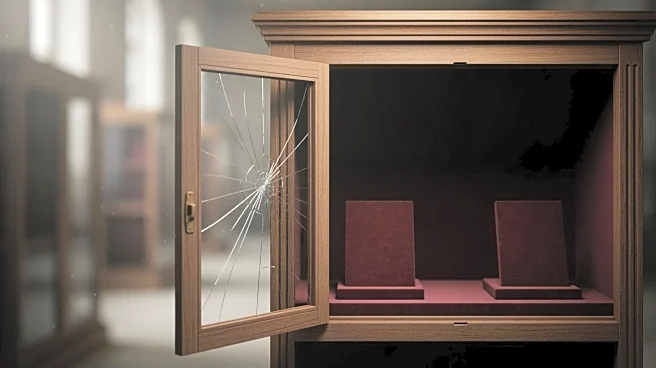What's Happening?
The luxury market is experiencing resilience amidst economic and geopolitical uncertainties, according to a study by Bain & Company and Altagamma. Global luxury spending is projected to remain stable in 2025
at 1.44 trillion euros at constant exchange rates, though it may decrease by 1 to 3 percent at current exchange rates. The study highlights a shift towards luxury experiences such as hospitality cruises and fine dining, reshaping the industry. Personal luxury goods sales are expected to decrease by 2 percent in 2025, with ultra-wealthy buyers sustaining demand while aspirational consumers pull back. The market faces challenges such as uneven regional growth, pricing pressure, and fragmented consumer personas, necessitating a balance between profit and purpose.
Why It's Important?
The luxury market's shift towards experiences reflects broader consumer trends prioritizing emotional and experiential value over material goods. This transition could impact traditional luxury brands, requiring them to innovate and adapt to changing consumer preferences. The industry's resilience amidst economic uncertainties underscores its significance in global markets, particularly in regions like the Middle East, which is expected to see growth. The contraction in margins and the need for brands to optimize costs and enhance efficiency highlight the pressures faced by luxury companies. This evolution may influence U.S. luxury brands and their strategies in engaging consumers, particularly Gen Z, who are value-conscious and seek authenticity.
What's Next?
Luxury brands are expected to reimagine physical retail spaces, focusing on fewer, larger flagships that offer immersive and personalized experiences. Geographic markets such as China and Europe are anticipated to face challenges, while the Americas may see stable or slight growth. Brands are likely to diversify into other categories, such as dining and wellness, to attract aspirational customers. The industry may continue to face margin pressures, prompting a focus on performance discipline and AI-enabled efficiency. The study suggests that creativity, ethics, and inclusivity will be crucial for brands to maintain relevance and trust among consumers.
Beyond the Headlines
The luxury market's evolution towards experiences and ethical practices may lead to long-term shifts in consumer behavior and brand strategies. The emphasis on authenticity and inclusivity could redefine luxury's value proposition, moving away from elitism towards a more accessible and purpose-driven model. This transformation may influence cultural perceptions of luxury and its role in society, potentially fostering greater engagement with diverse consumer bases. The industry's focus on sustainability and ethical standards may also drive innovation and collaboration across sectors, contributing to broader economic and cultural impacts.









